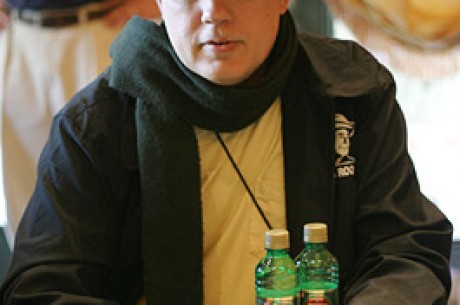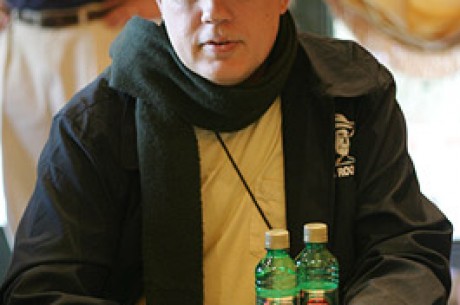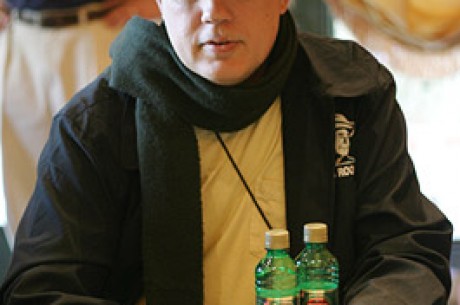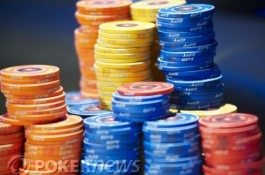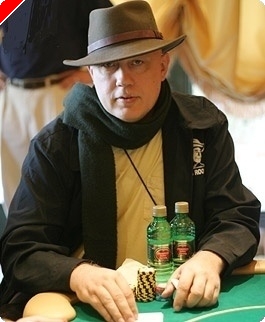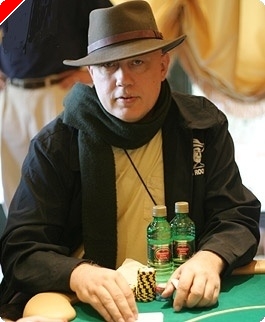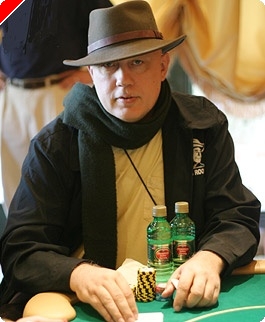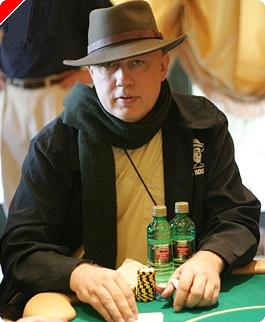Inside The Poker Tour �C 59 - Showing
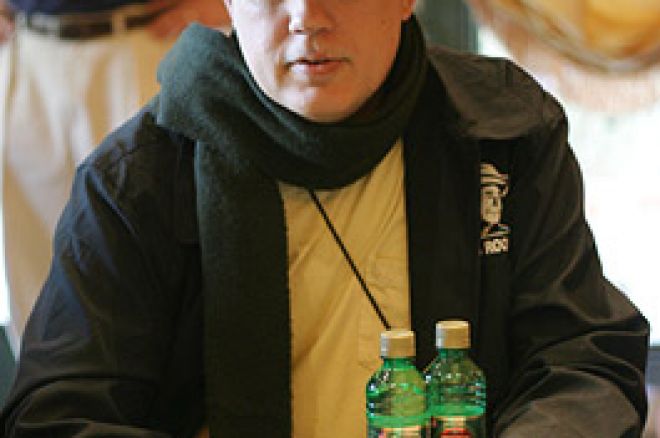
Showing your hands when you win �� gratis!
There is nothing more exhilarating for a player than winning with nothing. The all-in bluff that brings you the whole pot does not matter whether it stands on a foundation of sensing weakness or because you feel that it is mathematically correct. As you stack those chips you feel like a genius. At the 10,000 dollar event at the Bellagio in August I repeatedly saw young internet players check-raise with a gut-shot draw on the flop, get called and then move all-in on the turn when they missed!
Of course being young and foolish they could not restrain themselves and showed their successful bluff as they were full of elation in the moment and perhaps did it to intimidate their opponents as well. If you are sure that you will have a very strong hand the next time you make this play it makes sense. Otherwise it is foolish; very, very foolish. If poker is the game of "imperfect information" it continually amazes me to see various players cough up something so valuable for free. I think it is a lot like chopping your finger off, it makes no sense. The table and your opponent should have to wonder what happened; did you have a big hand? Or did you run a great bluff? Does someone imagine that something positive can come out of showing your cards?
Of course sometimes the wondering alone will cost you. At one no-limit tournament at the Bellagio a few years ago I limped up front with AA and Daniel Negreanu made it four times the big blind and when it came to me I moved all-in. He thought long and hard and called with his QQ, after which the board came K44Q7.
As I was leaving Daniel came over and apologized and said that it was a carryover from two days earlier when we had played for seven hours at a final table (which included Howard Lederer, and Phil Hellmuth) where I was on Daniel's right and four times I had checked to him and after he bet I made an all-in check-raise each of which made him squirm for minutes before mucking. The important footnote to this hand is that if you hold AA you want QQ to call you as there are not very many matchups that are more favorable to you, you are unlikely to find an opponent with A9 off-suit in such situations. The result of such a shoot-out cannot be your whole story, but did it cost me or get a good match-up for me in this case?
There are other cases, of course, where testosterone takes over and the play is about other issues altogether. In the recent televised broadcasts of the 2006 WSOP Prahlad Friedman felt that Jeff Lisandro had not put up his ante (subsequent video showed that he had) and kept making noise about it. Now Lisandro made a play against Friedman and then showed a weak hand to him afterwards! Whoops! Wrong person at the wrong moment, Prahlad now risked hundreds of thousands of real dollars to make two plays against Lisandro and then table his rags face up after his success. Not limited to these examples they both made mistakes and took their eye off the ball. Foolishness begets foolishness in my eyes, but perhaps some of you will keep showing your cards in triumph, or celebrating near the table, or trash talking to your opponents?
There was a time when one would never dream of showing someone up at the table and that was because you were inviting a bullet, given to you by a gun, which would likely be delivered to you above or below the table, where you sat, or as you left the place of play. The same thing went for celebrating over a victory or trash talking to your opponents. Where did this behavior come from? Raging hormones and other kids that are playing on the internet these days? I believe it is learned behavior and copied from amateurs that are glorified on television, pumping fists, screaming, and flopping on the tabletops.
This is acceptable behavior? I do not think so and it is not simply that I am 'old school' (shut up and stack your chips when you are fortunate enough to win), but that I recoil from actions that are designed to show the other player up. What is underneath the celebration? The fact is that someone else lost the pot, is that misplaced in this drama? The only time that I think that it is somewhat okay is after the final hand when you have won the tournament��even there I think some limits on your celebration are called for.
I was surprised at the animation of Alan Goehring at the final table of the LAPC when he caught the case card and went nuts celebrating. JC Tran took it as well as one can but the fact is that this catch almost surely cost him over a million dollars in real money.
Of course there are also many cases in the history of cards where humorous events have happened out of foolishness at the table. One of the most common happenings occurs when players emphatically slam a winning hand down and have one card hop off the table. Most card rooms have a rule where you have to have the entire and legal hand on the tabletop to get the pot.
The most dramatic event that I have ever heard of was in Artichoke Joe's in San Mateo, California where the big game was no-limit lowball, now back in the 1960's the game was huge with tens of thousands of dollars on the table daily and sometimes hundreds of thousands of dollars. One of the biggest players was Mark Sherman and he got another player to put all of his money in one pot by literally tearing his wheel (the best possible hand in California low-ball) in half (they still used paper cards at this point in time), after which they had to call various authorities to make sure that his hand was still valid, even though it now had ten parts! It was all on the table and ruled good, so subtract the cost of a deck from his huge win and it was still had more money in it than the president of the United States made at that time in a year.
Deception, though, is a part of the modern game of poker and can be skillfully done without tearing your hand in two! You can play most hands in a way that makes it difficult to perceive what you likely have. Betting out, checking, overbetting, raising, check-raising and moving all-in are some of the tools that you might use if you want to be successful. Interestingly enough they can all be done without showing the hands��before, during, and after the playing of those hands.
I also fail to see what one gains by trash talking. Is it your hope that you will get your opponent to make a mistake in a future hand? It seems to me that this will sometimes get your opponent to vary from his predictable behavior and make him harder to read. That is a very strange goal if that is your intention.
Don't forget to play good��and get lucky!
Ed note: Show, or No show? The choice is yours at Ultimate Bet ��.

